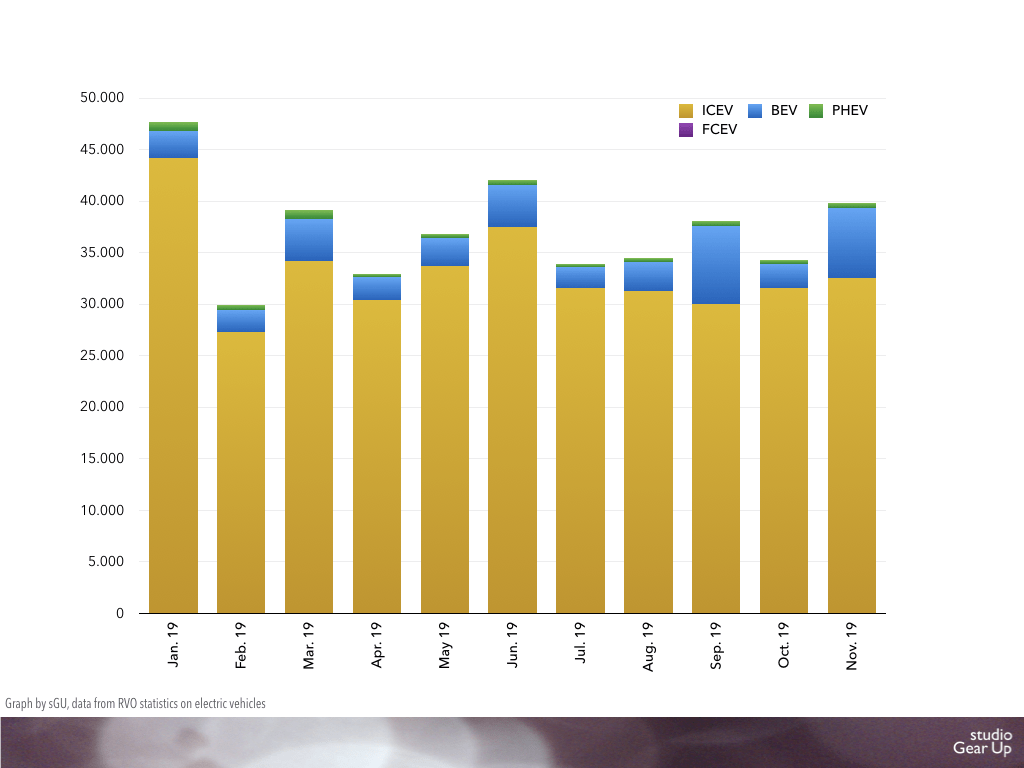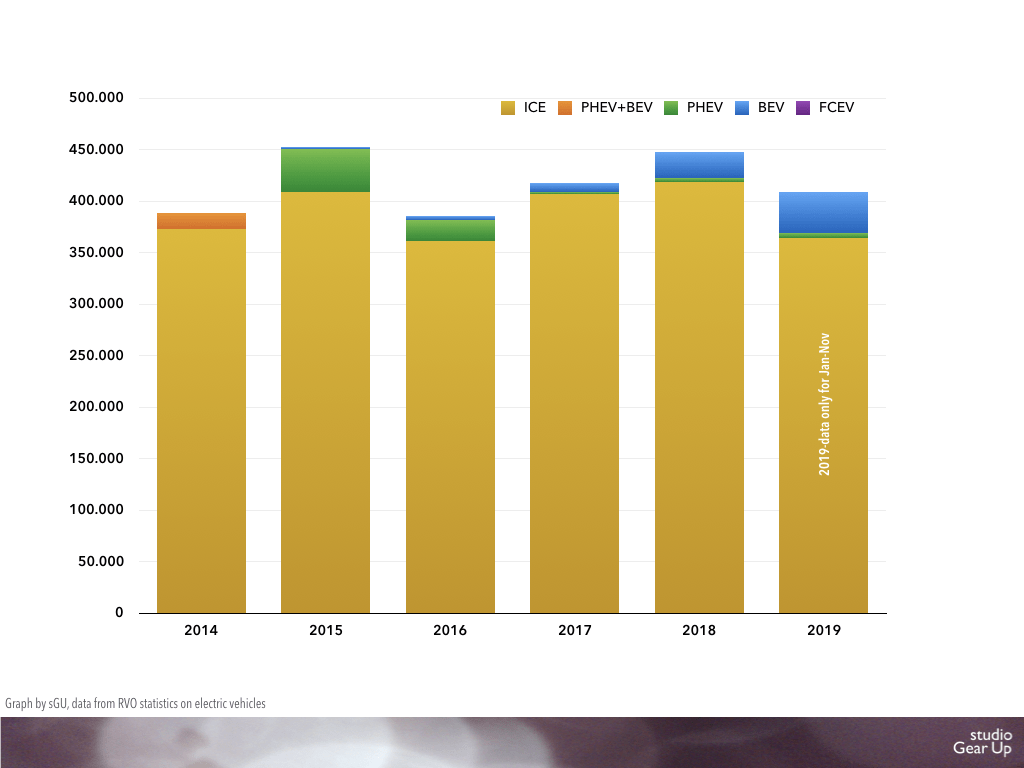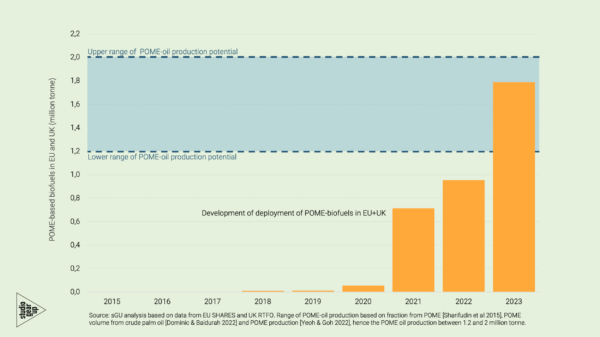11% of 2019-registered passenger cars in The Netherlands have a plug
Early December 2019, at the time of this blog, data by RVO on new car registrations up to November indicate that The Netherlands have achieved one of the targets agreed in the Green Deal Electric Transport 2016-2020. For 2020 it was aimed that 10% of new registered cars should have an electric powertrain (i.e. vehicles powered by hydrogen/fuel cells or other types of electric propulsion system) and a plug.
By end of November, one out of nine passenger cars registered in 2019 in then Netherlands was either a Battery Electric Vehicle (9,7%) or a Plug-in Hybrid EV (1,3%). In total 409 thousand passenger cars where registered, of which 40 thousand BEVs and 5 thousand PHEVs.
The December registrations are not yet known, but given that in 2020 fiscal support measures for electric vehicles are sobered, registrations in December will be similar or higher to those in November (share of battery electric vehicles went up to 17,2%) as customers want to still benefit the 2019-support.

In the graph below it can be seen that the share of electric vehicles over the years is growing. Changes in fiscal support schemes ended the support for Plug-in hybrides after 2016. From 2017 onwards focus has been redirected to supporting the market uptake of battery electric vehicles and fuel cell vehicles. The latter still is still entering the market at very small numbers (119 in total in eleven months). Based on the jan-nov sales in 2018, and based on the current registration in 2018 it can be expected that total sales in 2019 will summer up to around 430 thousand. 11% of that expected year-total would mean 47,3 thousand EV’s.

Another target in the Green Deal Electric Transport is the 2025 aspiration. This aims at 50% of all new cars sold having an electric powertrain and a plug, and at least 30% of these vehicles (thus 15% of the total registration) will be fully electric. From the 2019 figures it seems that achieving the 50% share would require a significant scale up, with more than 4 times more registration than currently is the case. The ambition that at least 30% of the registered vehicles should be fully electric seems out-dated, as this year the share of fully electric vehicles among all plug cars is already 88%! One important uncertainty for the coming years will be how registrations of full electric vehicles will develop under a sobering fiscal support scheme. 2020 is a year to watch!
How does the fiscal support scheme work?
Many vehicles in The Netherlands are actually business lease cars. The company pays the monthly lease costs. Once the business rider uses the car more than 500 km per year for private purposes, s/he will be taxed for that benefit: 22% of the sales value of the car will be added on the income before determining the total income tax to be paid. Full electric vehicles (battery electric vehicles and fuel cell electric vehicles) are taxed differently: in 2019 and previous years only 4% of the car value needs to be added. This keeps valid for a period of 5 years after registration of a car. In 2019 this was capped to 50 thousand euro, above which 22% was applied. In the coming years the percentage will go gradually up: 8% for registrations in 2020, 12% in 2021, 16% in 2022, 17% in 2025 and 22% in 2026. The cap will be 45 thousand euro in 2020, and 40 thousand euro from 2021 onwards. So from 2026 all business lease cars wil be treated equally.


